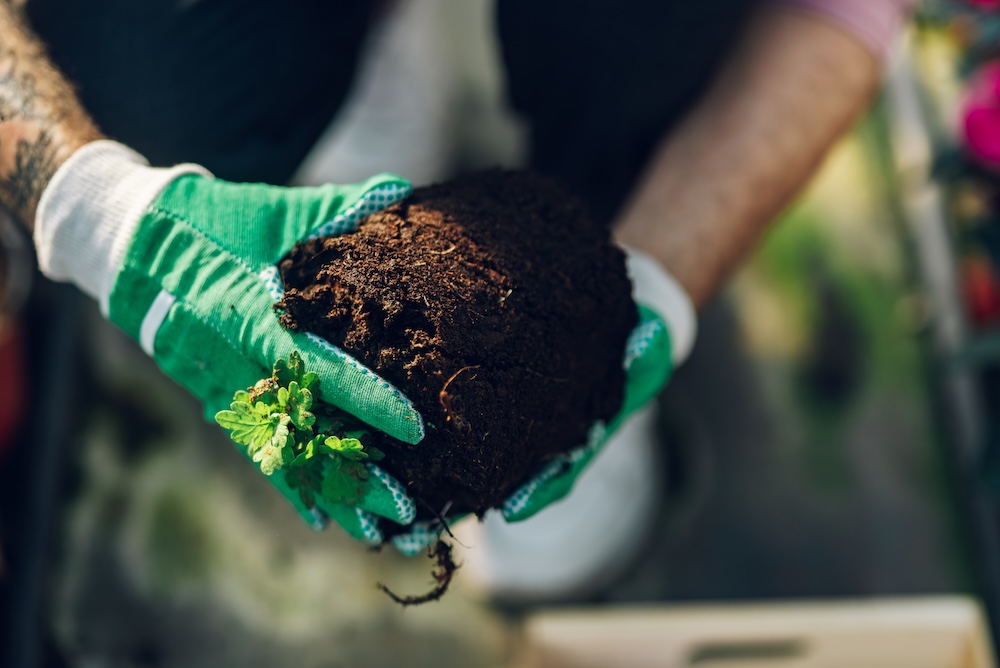You’ve heard of compost, but have you ever brewed it into tea? Compost tea is a nutrient-rich liquid fertilizer made by steeping compost in water. It’s one of the most effective, all-natural ways to nourish your garden—boosting plant health, increasing resistance to disease, and enhancing soil life.
In this guide, you’ll learn what compost tea is, how to make it (with or without aeration), when to use it, and why gardeners swear by this earthy elixir. If you’re looking for a sustainable, DIY way to supercharge your plants, compost tea is a game changer.
What Is Compost Tea?
Compost tea is the liquid extract of compost that contains beneficial microorganisms, nutrients, and organic matter. It works both as a fertilizer and a microbial inoculant, helping to:
- Feed plants organically
- Improve soil structure and nutrient uptake
- Increase beneficial soil microbes
- Strengthen plant immunity
- Prevent fungal diseases like powdery mildew and blight
It’s often sprayed on plant leaves (a foliar feed) or poured into soil as a root drench.
Why Use Compost Tea?
Unlike synthetic fertilizers, compost tea provides a living ecosystem for your soil. Here’s what sets it apart:
- It’s natural – no synthetic chemicals or runoff
- It’s regenerative – adds microbes that help break down nutrients in the soil
- It’s customizable – can be adjusted depending on plant needs or compost quality
- It’s budget-friendly – made from compost you already have
How to Make Compost Tea
There are two main methods: aerated and non-aerated. Both are effective, but they differ in effort, equipment, and microbial complexity.
Ingredients You’ll Need
- Mature compost (well-cured, earthy smell) – about 1 part
- Non-chlorinated water – about 5–10 parts
- Optional: molasses, seaweed, worm castings, or other natural nutrient boosters
Equipment
- A 5-gallon bucket or similar container
- Mesh bag, old pillowcase, or cheesecloth (for steeping compost)
- Stir stick or aeration device (depending on method)
Method 1: Aerated Compost Tea (ACT)
Time: 24–48 hours
Best for: Disease prevention, microbial richness
Steps:
- Add compost to a mesh bag and place it in your bucket of dechlorinated water.
- Add food for microbes—1–2 tablespoons of unsulfured molasses or seaweed extract.
- Aerate continuously using an aquarium pump or manually stir every few hours.
- Brew for 24–36 hours, no more than 48.
- Use immediately after brewing—microbes die off quickly.
Benefits:
- Higher populations of aerobic microbes
- Better disease suppression
- Faster uptake by plants
Method 2: Non-Aerated Compost Tea (Simple Steep)
Time: 3–7 days
Best for: Low-tech fertilizing
Steps:
- Place 1 part compost into a porous bag or directly in a container.
- Fill with 5–10 parts dechlorinated water.
- Stir once daily to release nutrients and oxygen.
- Let steep for 3–5 days.
- Strain and use directly or dilute with water (1:1).
Benefits:
- Requires no equipment
- Great for low-effort, periodic feeding
- Safer for indoor plants (no strong microbial explosion)
How to Apply Compost Tea
1. Soil Drench
Pour directly into the soil at the base of plants. This improves microbial diversity and root nutrient absorption.
Best for:
- Transplant support
- Root development
- Reviving depleted soil
2. Foliar Spray
Spray on plant leaves using a clean pump sprayer. Microbes compete with pathogens and strengthen plant immunity.
Best for:
- Disease-prone plants (e.g., tomatoes, squash)
- Pest-prone houseplants
- Early morning or evening applications
Note: Always strain compost tea through fine mesh or cheesecloth before spraying to avoid clogging nozzles.
Best Times to Use Compost Tea
- Early in the growing season to kickstart soil health
- During transplanting or after pruning
- After heavy rains (to replenish microbes)
- Bi-weekly for vegetable gardens
- Monthly for houseplants or perennials
Avoid applying in extreme heat, intense sun, or just before heavy rain.
Tips for Success
- Use compost tea within 4–6 hours of brewing—especially aerated versions
- Avoid chlorinated water, which kills microbes
- Clean equipment thoroughly between batches
- Use mature compost with a neutral, earthy smell
- Store in the shade while brewing to avoid heat stress
Compost Tea Boosters
To supercharge your tea for specific plant needs, consider:
- Molasses – feeds microbes, especially bacteria
- Kelp or seaweed extract – adds trace minerals and natural growth hormones
- Worm castings – boosts fungal populations
- Fish emulsion – high in nitrogen (use sparingly and outdoors)
FAQs About Compost Tea
Is compost tea a fertilizer?
Yes, but it’s also a microbial inoculant. It provides nutrients and living microbes to enrich soil health.
Can I use it on indoor plants?
Yes! Just use a non-aerated tea or dilute an aerated version. Avoid overwatering.
How long does compost tea last?
Use within 6 hours of brewing (aerated). Non-aerated may last 1–2 days if refrigerated, but fresh is best.
Does compost tea smell?
Properly brewed tea should smell earthy or slightly sweet. If it smells sour or rotten, discard it.
Can I use too much compost tea?
No real danger, but more isn’t always better. Overuse on indoor plants may cause soggy soil or microbial imbalance.
Final Thoughts: Brew Life Into Your Garden
Compost tea is more than just plant food—it’s a way to infuse your soil and plants with beneficial biology. It’s a living, breathing solution that brings your garden to life naturally. With a little compost, water, and intention, you can boost plant health, reduce disease, and support sustainable gardening from the ground up.








